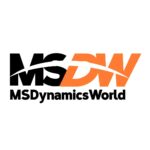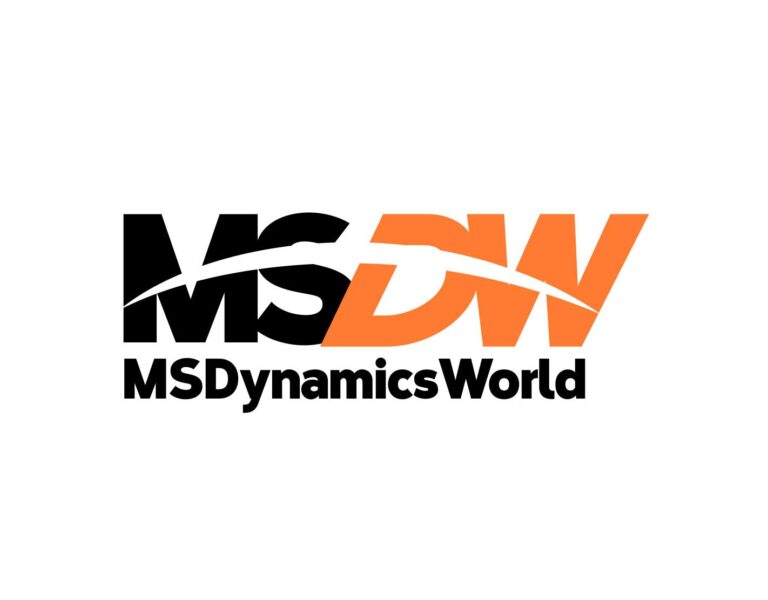Business leaders are facing a new reality. AI and agents are transforming traditional systems of record into systems of action, becoming applications that not only store data but use it to drive decisions and outcomes.
In this new model, the user experience becomes almost invisible. What matters most is the foundation: structured data, clear governance, and business logic that allows agents to operate effectively.
These are agentic business applications. They can help teams scale up capacity, lower operational costs, grow topline revenue, and surface key insights on an ongoing basis for smarter, faster decisions.
But technology alone isn’t enough. Business transformation requires functional leaders to align processes with these new capabilities. That means rethinking how work gets done. Agents can operate in the background, continuously monitoring, analyzing, and acting. They surface insights and take action, helping leaders stay focused on outcomes.
Early adopters—what we call Frontier Firms—are building the right foundations now. They are investing in agentic customer relationship management (CRM), enterprise resource management (ERP), and contact center solutions (CCaaS), as well as rethinking how to align business processes with agents. They realize there must be a fundamental shift in how work gets done.
To help organizations move to the Frontier, Microsoft offers a suite of agentic business applications with Dynamics 365—bringing enterprise-grade AI and Microsoft Copilot experiences across CRM, ERP, and CCaaS. Organizations can extend Dynamics 365 with Microsoft Power Platform and Microsoft Copilot Studio to build custom AI-powered applications and agents tailored to unique business needs.
At the core of every agentic business application there are three components:
- Agents that transform business processes.
- Copilot that empowers every employee to maximize productivity.
- A unified, secure data platform that connects insights across the enterprise.
Let’s take a look at each of the components of the stack.
Expanding Dynamics 365 agents in key business functions
Over the last year, we have launched more than a dozen business process agents in Dynamics 365, giving organizations a starting point to transform sales, service, finance, and supply chain. We’re continuing to expand our agent portfolio to deliver proactive and growth-oriented outcomes.
In Dynamics 365 Sales, the new Sales Close Agent (in public preview beginning October 25, 2025) help sellers prioritize high-value opportunities, identify and mitigate risks for deals in pipeline proactively, and close simple transactions—accelerating deal velocity and improving win rates.
Also in Dynamics 365 Sales, agents are moving to public preview and general availability, including Sales Research Agent (public preview began on October 1, 2025) and Sales Qualification Agent (with general availability beginning October 25, 2025).
In Dynamics 365 Customer Service and Dynamics 365 Contact Center, the new Quality Evaluation Agent (general availability beginning October 24, 2025) gives supervisors and service teams a real-time pulse on service quality across both human and AI-led interactions. Unlike traditional, manual approaches that review a small fraction of engagements, this agent uses the speed and scale of AI to evaluate the majority of cases and conversations, uncover actionable insights, and assess AI-handled interactions. It monitors quality metrics, detect anomalies, and initiate corrective actions—enabling broader, faster, and more consistent quality management.
In addition, service agents moving to general availability beginning October 24, 2025, include: Case Management Agent in Dynamics 365 Customer Service and Customer Knowledge Management Agent, and Customer Intent Agent in Dynamics 365 Customer Service and Contact Center. In Dynamics 365 Field Service, Scheduling Operations Agent, in public preview, keeps schedules agile and service running smoothly.
“By adopting agents in Dynamics 365 service solutions, we’re making every interaction faster and more empathetic. In a service where demand exceeds capacity, this can be a game changer.
Agents help gather information, route contacts based on need, and streamline resolution—enabling counselors to focus on direct support to young people.
In our fundraising unit, we’re also exploring how agents can manage inbound calls to reduce abandonment rates from 20 to 30% to under 5%—directly lifting revenue streams that fund vital services.”
—Helen Vahdat, Chief Information Officer, yourtown (Kids Helpline)
In our ERP portfolio, customers can use Account Reconciliation Agent in Dynamics 365 Finance and the Supplier Communications Agent in Dynamics 365 Supply Chain Management to complete reconciliation faster and process inbound supplier emails autonomously.
“The Account Reconciliation Agent pilot sharpened our team’s understanding of AI in practice and paved the way for a confident move toward the Supplier Communication Agent where we see clear potential to drive efficiency and enhance collaboration.”
—Wolfgang Bauer, ERP Team Lead, Haas Baumanagement GmbH
Additionally, customers can access Sales Order Agent and Payables Agent in Dynamics 365 Business Central and Time and Expense Agent and Activity Approvals Agent in Dynamics 365 Project Operations.
To further support organizations on their journey to the frontier, we’re making it easier to get started with agents. Beginning in late November 2025, Dynamics 365 Premium SKUs—including Dynamics 365 Sales Premium, Customer Service Premium, Supply Chain Management Premium, and Finance Premium—will include 1,000 Copilot Credits per user, per month, pooled at the tenant level. New and existing customers can use these credits to run agents in the scenarios most meaningful to their business. When the included capacity is exhausted, customers can add more capacity with additional Copilot Credits as needed.
Benchmarks—The Sales Research Bench
As organizations begin using agents to transform core processes, the next priority is ensuring these solutions deliver measurable value so that leaders can make confident high-impact decisions. Microsoft is meeting this need through benchmarks that provide a standardized evaluation framework to continuously measure quality of output from AI solutions. The most recent example is the Sales Research Bench, which uses a 100-point scale to measure what we have heard from sales leaders that matters most to them: accuracy, relevance, clarity, and transparency. More specifically, the Sales Research Bench evaluates how AI solutions generate text and data visualizations in response to the strategic, multi-faceted questions that sales leaders have about their business data.
The Sales Research Bench runs 200 business research questions typical of enterprise sales leaders on a sample customized data schema that reflects the complexities of enterprise environments. It assesses performance across 8 quality dimensions with scoring by large language models (Azure Foundry out-of-box evaluators for two dimensions and OpenAI’s GPT 4.1 model with specific instructions for the other six dimensions). Dimension-specific scores are weighted to create a composite quality score.
In evaluations executed by Microsoft using the Sales Research Bench framework, the Sales Research Agent in Dynamics 365 outperforms both ChatGPT-5 and Claude Sonnet 4.5. More details on the benchmark methodology and results are available here. We intend to publish the full evaluation package including the 200 benchmark questions and sample dataset in the coming months, so others can run these evaluations themselves.
With this approach, we’re creating purpose-built agent benchmarks aligned to the priorities of business leaders. Our intent is to demonstrate a new standard for trust and transparency, providing clear insight into the quality and performance of agents in a specific business function. We also plan to publish agent performance regularly to reduce friction and help leaders make confident, data-driven decisions.
Empowering everyone with Microsoft Copilot
The next critical layer in agentic transformation is Microsoft Copilot, which is embedded across Dynamics 365 enhancing sales, customer service, and finance. By automating routine tasks, such as summarizing key opportunities, drafting email responses to customer queries, and predicting and acting on supply chain disruptions, Microsoft Copilot frees employees to focus on strategic work to drive more impact.
With Copilot in Dynamics 365 Sales, sellers can spend less time in their CRM, and more time nurturing customer relationships. For example, Copilot can provide quick summaries of sales opportunities and leads, meeting preparations, and account-related news.
Grand & Toy uses Copilot’s real-time insights, dashboards, and time-saving features like chat summarization, email creation, and sentiment analysis to deliver exceptional customer service.
Connecting businesses on a unified, trusted platform
Lastly, there is the data layer—the foundation of agentic transformation. When unified, it can connect every interaction, insight, and action. With integration between Dynamics 365 and Microsoft 365, organizations can unify data and workflows, so teams can stay focused and make faster decisions.
Built on Microsoft Dataverse, Dynamics 365 agents deliver real-time insights across departments like sales, service, and finance without silos and enabling faster and more collaborative decision-making.
Banco PAN is a strong example of this transformation, using Dataverse as a core part of their Dynamics 365 solution to enable real-time integration across systems.
“Our operators now have immediate access to the customer’s history and can resolve issues more quickly.”
—Tulio Prado, Service Superintendent at Banco PAN
Dynamics 365 seamlessly connects with Power Platform and Copilot Studio, creating a unified foundation for apps, agents, and AI. This deep integration empowers everyone—not just professional developers—to build, customize, and deploy intelligent solutions that adapt to business needs. By bringing low-code innovation and enterprise-grade security together, organizations can streamline processes and workflows, reduce costs, and unlock new ways to work smarter.
Explore more
With today’s business applications varying widely in capability and impact, organizations face critical choices. Agentic business applications are the path forward. Discover how leading companies are moving on that path with Dynamics 365, beyond static systems of record to intelligent systems of action to drive real-time insights, automation, and growth.
- Tune into the Business Applications Launch Event streaming October 23, 2025 on YouTube to see real-world solutions built on Microsoft agentic business applications.
- Join us at Microsoft Ignite 2025 in San Francisco, California from November 18 to 21, 2025. Connect with industry leaders, explore hands-on demos, and be there to get the latest product announcements. Attend Innovation Sessions that delve deeper into how agentic business applications are reshaping the future of work and actionable strategies for leadership.
1 Methodology and Evaluation dimensions: Sales Research Bench includes 200 business research questions relevant to sales leaders that were run on a sample customized data schema. Each AI solution was given access to the sample dataset using different access mechanisms that aligned with their architecture. Each AI solution was judged by large language model judges for the responses the solution generated to each business question, including text and data visualizations. We evaluated quality based on 8 dimensions, weighting each according to qualitative input from customers, what we have heard customers say they value most in AI tools for sales research: Text Groundedness (25%), Chart Groundedness (25%), Text Relevance (13%), Explainability (12%), Schema Accuracy (10%), Chart Relevance (5%), Chart Fit (5%), and Chart Clarity (5%). Each of these dimensions received a score from a large language model judge from 20 as the worst rating to 100 as the best. For example, the large language model judge would give a score of 100 for chart clarity if the chart is crisp and well labeled, score of 20 if the chart is unreadable or misleading. Text Groundedness and Text Relevance used Azure Foundry’s out-of-box large language model evaluators, while judging for the other six dimensions leveraged Open AI’s GPT 4.1 model with specific guidance. A total composite score was calculated as a weighted average from the 8 dimension-specific scores. More details on the methodology can be found in this blog: The Sales Research Agent and Sales Research Bench.



